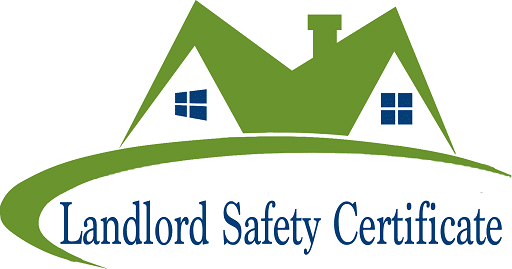
Managing rental properties in London requires strict attention to safety compliance. Many landlords rely on property agents not only to find tenants but also to handle vital letting agent safety duties that keep homes safe and legally sound. By forming compliance partnerships with landlords, agents reduce risks, build trust, and ensure tenants live in secure, well-maintained properties. This guide explains how London property agents support safety compliance and why their role is essential.
Safety is not just about tenant well-being—it is also a legal requirement under UK housing law. London councils regularly inspect rental properties to ensure landlords meet the highest standards. However, many landlords may lack the time, knowledge, or resources to keep up with every regulation.
Here, letting agent safety duties come into play. Agents monitor property conditions, arrange safety checks, and make sure all legal documents—such as gas and electrical certificates—are up to date. They act as the first line of defense, protecting landlords from penalties while ensuring tenants are never exposed to unnecessary risks.
By actively performing these duties, property agents help landlords stay compliant in a city where safety expectations are non-negotiable.
The responsibilities of property agents are extensive, covering both physical property checks and administrative compliance. Some of the most critical letting agent safety duties include:
Through these tasks, agents reduce risks and protect both landlords and tenants. In London’s competitive market, fulfilling safety duties also builds stronger relationships between all parties.
While property agents handle many responsibilities, real success comes from compliance partnerships with landlords. A compliance partnership means both parties share accountability, communicate consistently, and set clear expectations.
For example, landlords provide agents with inspection records, while agents schedule and oversee future checks. This teamwork prevents missed deadlines or overlooked hazards. Moreover, compliance partnerships let landlords benefit from professional expertise while retaining responsibility for the property.
In London, where councils impose strict penalties for failures, strong cooperation built on letting agent safety duties is not just useful—it is essential for long-term success.

Failing to comply with safety regulations carries serious consequences. London councils can issue fines up to £30,000, revoke licenses for Houses in Multiple Occupation (HMOs), or even pursue criminal charges. For landlords juggling multiple properties, it can be difficult to manage these responsibilities alone.
By delegating tasks to agents, landlords gain peace of mind that letting agent safety duties are consistently carried out. Agents ensure documents are valid, inspections are scheduled on time, and repairs are logged properly. In the event of a council inquiry, this documentation becomes vital proof of compliance.
Thus, property agents not only protect tenants but also safeguard landlords against legal and financial risks.
In London’s rental market, tenants expect safe, modern, and well-maintained homes. When agents fulfill their letting agent safety duties effectively, tenants immediately notice the results. Prompt repairs, clear updates about inspections, and visible safety measures all inspire trust.
As a result, compliance partnerships reduce complaints, lower turnover rates, and strengthen a landlord’s reputation. Ultimately, this creates a win-win outcome: tenants enjoy secure homes, landlords remain compliant, and agents prove their value as trusted safety partners.
Many landlords lack the technical knowledge to fully understand safety regulations, but trained property agents bridge that gap. In London, agents often attend seminars, join professional associations, and work closely with local councils to stay updated on housing rules.
Because of this expertise, they can explain complex requirements in simple terms. For example, when an EICR reveals urgent faults, agents interpret the report, advise landlords, and arrange repairs. By handling these responsibilities, letting agents ensure safety issues are addressed promptly and reinforce the importance of their safety duties.
Managing multiple student rentals in central London can quickly overwhelm landlords. With frequent tenant turnover and strict safety rules, staying compliant is a constant challenge. However, forming compliance partnerships with a trusted agent makes the process far smoother.
In practice, the agent arranges annual gas checks, books electrical inspections, and tracks safety certificates. They also provide monthly updates and keep detailed records. When the council requests proof of compliance, everything is ready. This case clearly shows how compliance partnerships combined with letting agent safety duties protect landlords from fines and disputes.
Even experienced agents face difficulties when ensuring compliance. Some landlords resist investing in upgrades, while tenants may fail to report issues quickly. Additionally, frequent changes to fire and housing safety rules require constant monitoring.
Despite these obstacles, compliance partnerships make the process smoother. Through proactive inspections, strong communication, and reliable follow-ups, agents resolve issues before they escalate. By addressing challenges directly, agents show that their letting agent safety duties are vital to maintaining compliance in London’s demanding rental market.
As regulations grow stricter, letting agent safety duties will continue to expand. Future laws may require more frequent inspections, smart technology integration, or stricter record-keeping. For landlords, this means compliance partnerships will become even more valuable.
Agents will not only manage existing safety requirements but also anticipate new ones, keeping landlords ahead of the curve. In a rapidly evolving rental landscape, those who embrace proactive compliance strategies will gain a competitive advantage.
In London’s rental market, property agents are more than intermediaries—they are vital partners in safety compliance. By fulfilling letting agent safety duties, agents protect tenants, reduce landlord risks, and maintain legal compliance.
Through compliance partnerships, landlords and agents share responsibility, communicate effectively, and ensure no safety duty is overlooked. This collaboration builds trust, prevents costly mistakes, and secures long-term rental success.
For landlords who want to thrive in London’s competitive property sector, investing in compliance partnerships with skilled property agents is not optional—it is a necessity.

